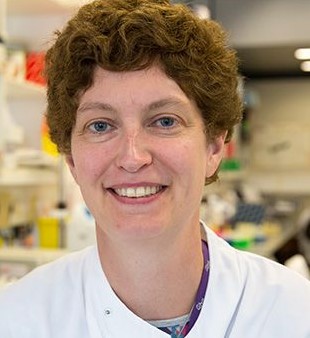Research And Grants

UCL Institute of Child Health - $200,000
Dr. Karin Straathof
$200,000.00
December 2015
Clinical
DIPG
T-cell based immunotherapy for DIPG.
Diffuse Intrinsic Pontine Glioma (DIPG) is a rare but incurable cancer of childhood with a pressing need for novel therapeutic strategies. Cell-based immunotherapy provides a radically new approach. Here, patient derived T-cells are grafted with the required specificity so that they can bear their destructive potential on tumour cells while leaving healthy tissue unharmed. This can be achieved using Chimeric Antigen Receptors (CARs) which are fusion proteins between the antigen binding domain of a monoclonal antibody and T-cell signalling components. Ex vivo engineering of T-cells to express CARs allows the generation of T-cells with any desired non-MHC restricted specificities. Upon recognition of the cognate antigen CAR Tcells can lyse tumour cells, proliferate, recruit other immune cells and persist to provide longlasting anti-tumour immunity. Adoptive immunotherapy with CAR T-cells has resulted in unprecedented complete and sustained clinical responses in patients with chemotherapy resistant B-cell malignancies. Pre-clinical data demonstrates that CAR T-cells can home to intracranial tumours and mount an anti-tumour response. CAR T-cell therapy studies for adult gliomas have already been initiated. We believe we can build on this experience and develop CAR T-cell therapy as an effective treatment approach for DIPG.
However, unlike B-cell malignancies with facile targeting of CD19, targets for DIPG are not well established. The aim of this proposal is to identify and validate target antigens for CAR T-cell therapy for DIPG. We (Hawkins, Toronto) have a unique set of expression data from this rare disease. This data will be analysed to identify genes encoding proteins which may serve as DIPG-specific CAR targets. We anticipate that it may not be possible to simply target a single antigen. However, the investigator team brings together the unique expertise in DIPG genetics and biology (Hawkins/Brudno SickKids) with technology and know-how in CAR T-cell therapy development (Straathof/Pule, UCL) to get around this problem. Briefly, T-cells can now be engineered to be activated only upon recognition of an antigen over a threshold expression level or upon recognition of a combination of antigens. Expression of candidate antigens will be studied extensively by immunohistochemistry on DIPG and normal tissue arrays. From this information the optimal approach will be identified to achieve discrimination by CAR engineered T-cells between DIPG and normal (brain) tissue. Then, binders specific for validated DIPG targets will be generated to construct CARs as T-cell immunotherapeutics for DIPG.
This project will form the foundation from which CAR T-cell therapy for DIPG can be developed. Once appropriate target antigens have been identified we anticipate being able to leverage further funding required for in vitro and in vivo functional testing of CARs for DIPG therapy. UCL has an established CAR T-cell programme which includes GD2-targeted CAR T-cell therapy for neuroblastoma and EGFRvIII-targeted CAR T-cell therapy for adult glioma. For clinical translation of this approach we will take advantage of this existing CAR development pipeline which will ensure rapid acquisition of further pre-clinical data including small animal models to demonstrate safety and efficacy of T-cell based therapy for DIPG.
Our overall aim is to make this promising treatment strategy available to children with DIPG and potentially high-grade gliomas in the near future.

